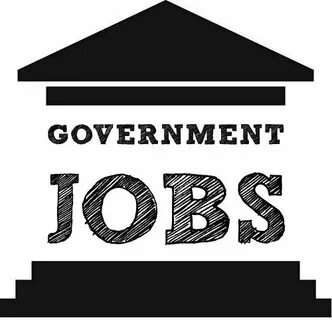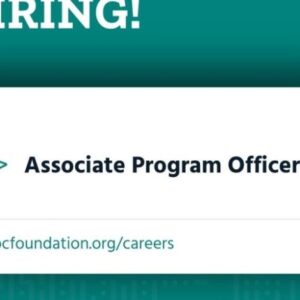
Introduction: Why Government Jobs Still Matter
In Nigeria, government jobs remain one of the most secure and respected career paths. They offer stability, pensions, allowances, and structured promotions—benefits that many private companies cannot guarantee.
However, the process of securing a government job can be daunting. From spotting genuine vacancies to passing aptitude tests and interviews, the road is often filled with challenges that discourage many applicants.
The good news? With the right knowledge and strategy, you can navigate the system and increase your chances of success. This guide provides a practical step-by-step breakdown of how to apply for government jobs in Nigeria without confusion or costly mistakes.
Step 1: Know Why You Want a Government Job
Before you begin, ask yourself: Why government work?
Government jobs are appealing for many reasons:
- Stability: Rarely affected by layoffs.
- Benefits: Pension, housing, and healthcare packages.
- Career Progression: Clear promotion structures tied to years of service.
- Social Respect: Civil servants are often held in high regard.
Understanding your “why” will help you stay motivated during the often lengthy recruitment process.
Step 2: Find Genuine Job Vacancies
Scams are common in Nigeria’s job market, and government recruitment is no exception. To avoid falling into traps, always rely on verified sources.
Where to find authentic vacancies:
- Federal Civil Service Commission recruitment portal.
- Specific ministry or parastatal websites (e.g., Ministry of Health, NNPC, Police Service Commission).
- Major national newspapers like The Guardian and Daily Trust.
- Reputable job boards such as Jobberman that verify openings.
📌 Tip: Be wary of WhatsApp broadcasts, fake social media pages, or agents demanding payment. Genuine applications are always processed through official platforms.
Step 3: Understand the Requirements
Every vacancy comes with strict eligibility criteria. Missing even one can cost you the opportunity.
Common requirements include:
- Nigerian citizenship.
- Minimum educational qualifications (SSCE, OND, HND, or BSc depending on the role).
- NYSC discharge or exemption certificate for graduates.
- Age bracket (usually 18–35 years for entry-level roles).
- Certificate of medical fitness from a recognized hospital.
- Local government or state of origin certificate.
👉 Always read the advertisement carefully before applying.
Step 4: Get Your Documents Ready
Applying for a government job in Nigeria is not just about filling out a form—it’s about proving your eligibility through well-prepared documents. Recruiters will use your papers to confirm your identity, qualifications, and suitability for the role. Unfortunately, many job seekers get disqualified because of missing, outdated, or inconsistent documents.
To save yourself stress, the key is organizing your documents in advance.
Why Document Preparation Matters
- Verification stage: During screening, only candidates with complete and authentic documents move forward.
- Consistency: Any mismatch (like different names on your certificates and ID) can disqualify you.
- Efficiency: Having both hard and soft copies ready ensures you can apply quickly when vacancies open.
- Professionalism: Well-arranged documents in a neat file show seriousness and preparation.
Essential Documents You’ll Need
Here’s a breakdown of the most important documents for government job applications in Nigeria:
- Birth Certificate or Age Declaration
- Usually issued by the National Population Commission (NPC) or a sworn affidavit from a court.
- Confirms you meet the age requirement (often 18–35 years for entry-level jobs).
- Educational Certificates
- SSCE/WAEC/NECO certificates (minimum for clerical roles).
- OND, HND, or BSc certificates depending on the job level.
- Higher degrees (Masters/PhD) for specialized positions.
- NYSC Certificate
- Either a discharge certificate or an exemption letter.
- This is compulsory for graduates applying to federal and state roles.
- Local Government Identification
- A letter of identification from your local government area (LGA).
- Confirms your origin and may be a deciding factor in state government jobs.
- National Identification Number (NIN)
- Increasingly mandatory for most applications.
- Ensure your NIN details match your other credentials.
- Passport Photographs
- Recent (usually taken within 6 months).
- Plain white or light background preferred.
- Valid Means of Identification
- NIN slip, voter’s card, driver’s license, or international passport.
- Some roles specifically request one type.
- Medical Fitness Certificate
- Obtained from a recognized government hospital.
- Especially important for uniformed services like police, army, or immigration.
- Curriculum Vitae (CV)
- Keep it short, professional, and tailored for civil service applications.
- Highlight qualifications, skills, and relevant experience.
Pro Tips for Organizing Your Documents
- Scan everything: Save clear, legible scans as PDF or JPEG files (below 2MB each). Many portals reject large files.
- Name files correctly: Use clear names like BSc_Certificate.pdf instead of Document1.pdf.
- Check for consistency: Ensure the spelling of your name is the same across all documents. If not, swear an affidavit.
- Keep duplicates: Make at least 3 photocopies of each document for physical screenings.
- Use a folder: Arrange hard copies in a neat, waterproof folder for easy presentation.
Common Mistakes Applicants Make
- Submitting blurry or cropped document scans.
- Using passport photos with distracting backgrounds.
- Forgetting to update old documents (e.g., expired ID cards).
- Inconsistent names (e.g., middle name missing on one certificate).
- Waiting until applications open before rushing to gather documents.
✅ Bottom line: Proper document preparation is what separates successful candidates from those screened out early. Think of it as your first impression—if your papers are disorganized, recruiters assume you’ll be careless on the job.
Step 5: Apply Through the Official Portal
Government recruitment has become largely digital, with most applications done online.
Steps to apply successfully:
- Visit the official recruitment portal of the agency.
- Register with a valid email and phone number.
- Fill out personal details carefully—ensure they match your documents.
- Upload required files in the correct format and size.
- Review your information before final submission.
- Print or save your application slip for reference.
📌 Common mistake: Submitting multiple applications for the same role. Stick to one—duplicate submissions can lead to disqualification.
Step 6: Write a Civil Service-Friendly CV and Cover Letter
Even though the process feels rigid, your CV still matters. A sloppy CV can ruin your chances.
Tips for a strong government job CV:
- Keep it short—2 to 3 pages maximum.
- Highlight education, relevant skills, and achievements.
- Use simple formatting (no flashy designs).
- Be honest—fake information is easily exposed.
For your cover letter:
- Mention the position and agency clearly.
- Show genuine interest in serving the public sector.
- Be polite, professional, and straight to the point.
Step 7: Prepare for Aptitude Tests
Most government recruitment exercises involve screening exams to filter applicants.
Expect questions in areas like:
- English language and grammar.
- Numerical reasoning.
- General knowledge and current affairs.
- Logical reasoning.
- Industry-specific questions (e.g., law for legal roles, accounting for finance jobs).
💡 Past questions are available online. Practicing them helps you understand the exam format and time management.
Step 8: Get Ready for Screening and Interviews
If you pass the test, you’ll be invited for screening or interviews.
What usually happens:
- Verification of original documents.
- Medical checks for fitness.
- Panel interviews to test knowledge and confidence.
- Physical drills (for security-related jobs like police or army).
Preparation tips:
- Dress formally—first impressions count.
- Carry all your documents in an organized folder.
- Research the agency and be ready to answer questions like: Why do you want this job?
Step 9: Watch Out for Scams
Fraudsters target job seekers by posing as government insiders. Don’t fall victim.
Red flags of job scams:
- Requests for money in exchange for guaranteed slots.
- Job offers without exams or interviews.
- Emails from free domains like Gmail instead of official government sites.
- Promises of “connections” with top officials.
👉 Genuine government jobs are free and merit-based.
Step 10: Be Patient and Persistent
Unlike private recruitment, government hiring is slow. It may take months—or even over a year—from application to final posting.
How to stay motivated during the wait:
- Apply for multiple openings instead of banking on one.
- Keep learning skills while waiting.
- Network with civil servants for inside tips.
- Regularly check official portals for updates.
Remember, persistence is key. Many successful civil servants failed at first but kept trying until they secured a role.
Quick Comparison: Government Jobs vs Private Sector
| Aspect | Government Jobs | Private Sector Jobs |
|---|---|---|
| Job Security | Very high | Moderate to low |
| Salary | Structured and steady | Negotiated, may be higher but unstable |
| Career Growth | Based on years and exams | Based on performance and results |
| Benefits | Pension, healthcare, allowances | Varies by company |
| Recruitment Process | Centralized, formal, often lengthy | Company-specific, usually faster |
Conclusion: Your Pathway to a Secure Future
Applying for government jobs in Nigeria may feel intimidating, but it becomes easier once you understand the process and requirements. By finding genuine vacancies, preparing documents, writing a solid CV, and preparing for exams and interviews, you place yourself miles ahead of casual applicants.
Yes, the journey is competitive and slow, but with patience, preparation, and persistence, your dream of joining the Nigerian civil service can become a reality.
Remember: government jobs aren’t just given—they’re earned. If you follow this step-by-step breakdown, you’ll not only avoid costly mistakes but also increase your chances of success.
FAQs
1. Do I need to pay money to apply for government jobs in Nigeria?
No. Genuine government job applications are free. If anyone asks for money to “secure” a role, it’s a scam.
2. What is the age limit for government job applications in Nigeria?
Most entry-level roles require applicants to be between 18–35 years. However, some specialized or senior roles may have higher age limits.
3. Can I apply for more than one government agency at a time?
Yes, you can apply to different agencies as long as you meet their requirements. But avoid sending multiple applications for the same role in one agency.
4. Do I need NYSC to apply for federal government jobs?
Yes, graduates generally need an NYSC discharge or exemption certificate. Without it, most federal job applications will be invalid.
5. How long does the recruitment process usually take?
Government recruitment can take months and sometimes over a year due to bureaucratic processes. Patience is essential.
6. What kind of questions should I expect in aptitude tests?
Expect English, mathematics, current affairs, logical reasoning, and sometimes role-specific knowledge (like law, accounting, or IT basics).
7. How can I confirm if a government job advert is real?
Always check the official government recruitment portal or ministry website. Avoid relying on WhatsApp broadcasts or unknown social media pages.






